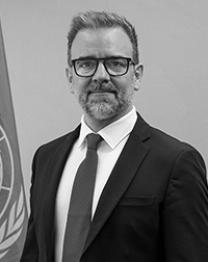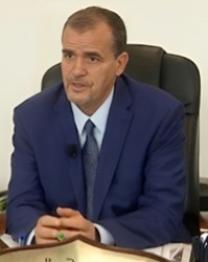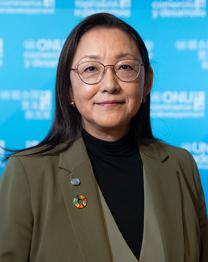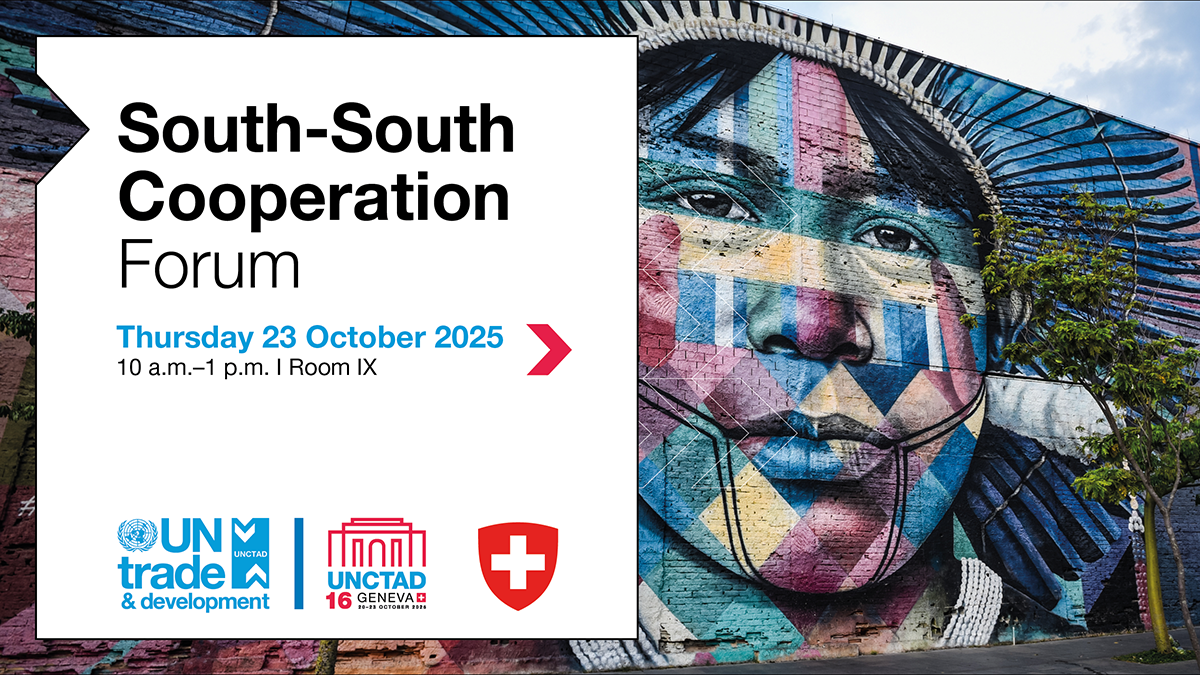
The economic dynamics of the global South have changed substantially over the past decades. South–South trade has been a major driver of global trade, with its value expanding tenfold over the last three decades. UNCTAD has played a historical role in promoting South–South dialogue and trade. Among other initiatives, the Global System of Trade Preferences provides a unique framework for interregional trade cooperation and sustainable development among developing countries.
While South–South cooperation has proven instrumental for inclusive structural transformation, lack of data has kept its contribution to the 2030 Agenda for Sustainable Development largely invisible. This is now changing with the initial conceptual framework for the measurement of South–South cooperation developed by the global South. Through the United Nations Statistical Commission, countries asked UNCTAD to test this framework and enable South–South data reporting for the Sustainable Development Goals.
Against this backdrop, this forum offers an opportunity to take stock of the evolution of South–South cooperation and to discuss future priorities in the context of rapid technological change, environmental concerns and rising uncertainties that reshape development prospects.
Programme
Opening remarks:
- Luz Maria de la Mora, Director of the Division on International Trade and Commodities, UN Trade and Development (UNCTAD)
Panel 1: South–South cooperation - setting priorities
Participants at this forum session will reflect on the achievements and the way forward for South–South cooperation, including on existing or missing coordinating mechanisms and institutions.
The session will include an exchange on past experiences with and expectations about South–South cooperation between senior policymakers at the sixteenth session of the Conference, emphasizing the regional aspects as challenges and enablers for South–South cooperation.
Questions:
- What has been achieved by South–South cooperation and through which main modalities and activities?
- What role would be best for the global South to play in shaping a new global development paradigm that is equitable, sustainable and resilient?
- What is required to further strengthen South–South cooperation and inclusive structural transformation in the global South? Is there a need for improved coordination of South–South cooperation modalities or should South–South cooperation continue to evolve spontaneously in response to national and regional needs?
Speakers:
- Kamel Rezig, Minister of Foreign Trade and Export Promotion, People’s Democratic Republic of Algeria
- Deborah Rivas Saveedra, Vice Minister of International Trade and Foreign Investment, Ministry of International Trade and Foreign Investment, Republic of Cuba
- Febrian A. Ruddyard, Vice Minister of National Development Planning, Ministry of National Development Planning, Republic of Indonesia
- William Castillo Bollé, Vice Minister of Anti-Blockade Policies, Ministry of People's Power for Economy, Finance, and Foreign Trade, Bolivarian Republic of Venezuela
- Yuefen Li, Senior Advisor on South-South Cooperation and Development Finance, South Centre, Geneva
Moderator:
- Stephanie Blankenburg, Chief, Economic Cooperation and Integration among Developing Countries Branch, UN Trade and Development (UNCTAD)
Remarks:
- Pedro Manuel Moreno, Deputy Secretary-General of UN Trade and Development (UNCTAD)
Panel 2: South–South trade partnership for accelerating the Sustainable Development Goals
Participants at the forum session will discuss how South–South trade cooperation, particularly the Global System of Trade Preferences, can provide a viable avenue for economic growth and diversification in times of global trade uncertainties.
Questions:
- What is the significance of the South–South trade partnership in today’s multi-polar world?
- In which policy areas or sectors does South–South trade cooperation become most effective in enabling developing countries to leverage trade for sustainable development?
- How can UNCTAD assist member states in deepening trade cooperation – particularly through frameworks like the Global System of Trade Preferences – to promote sustainable trade and development?
Speakers:
- Omar Zniber, Ambassador to the United Nations Office in Geneva, Government of the Kingdom of Morocco
- César Sánchez Icaza, Under-Secretary of Foreign Trade Policy, Ministry of Production, Foreign Trade, and Investment, Government of Ecuador
- Daniela Arruda Benjamin, Director, Department of Regional Integration, Ministry of Foreign Affairs, Government of Brazil
- Vanessa Erogbogbo, Director of Sustainable and Inclusive Trade, International Trade Centre
Moderator:
- Miho Shirotori, Chief, Trading system, Services and Creative Economy Branch, UN Trade and Development (UNCTAD)
Panel 3: Quantifying South–South cooperation
For too long, South–South cooperation was the only major form of development cooperation that was not systematically measured.
The forum session will provide an update for member States on progress and findings from the first set of South–South data and a discussion on how to ensure that South–South cooperation, informed by data provided by the global South, counts in future debates.
Questions:
- What progress has been achieved in the measurement of South–South cooperation? How can the proper collection and use of data improve decision-making?
- Can data gathered by the global South reshape development narratives and enhance collective resilience in the face of global shocks?
- How can UNCTAD, partners and countries best support developing economies to build inclusive data ecosystems?
Speakers:
- Juhara Abdulaziz Al-Suwaidi, Deputy Permanent Representative, Mission of Qatar to the United Nations Office in Geneva
- Sanjay Kumar Verma, Chairman, Research and Information System for Developing Countries (RIS)
- Márcio Lopes Corrêa, Head of the Coordination for Multilateral Cooperation, Brazilian Cooperation Agency, Ministry of Foreign Affairs. Brazil
- Emmanuel Omokhomion, Lead Data Scientist, National Bureau of Statistics, Nigeria
Moderator:
- Manuela Vivas, South-South Cooperation Data Team, Agencia Presidencial de Cooperación Internacional de Colombia (APC Colombia)
Closing remarks:
- Stephanie Blankenburg, Chief, Economic Cooperation and Integration among Developing Countries Branch, UN Trade and Development (UNCTAD)
Mr. Pedro Manuel Moreno of Spain, is Deputy Secretary-General of UNCTAD.
He has over 20 years of experience of working for multilateral and intergovernmental organizations in programme, management and strategic positions both in the field and at headquarters.
He was Deputy Secretary-General of the Communication for Development Committee at the Spanish National Commission with the United Nations Educational, Scientific and Cultural Organization (1999-2004), and for the United Nations Development Programme, at the Country Office in Ecuador and, in New York City, as part of the Human Development Report team, at the Regional Bureau for Latin America and the Caribbean and at the Executive Office.
In 2014, he was appointed Chief of Staff of the Ibero-American Conference in Madrid, where he coordinated key political processes and South-South cooperation projects.
In September 2021, he was named Chief of Staff and Director of the Office of the Secretary-General of UNCTAD.
Kamel Rezig has held the position of Minister of Foreign Trade and Export Promotion of Algeria, since April 2025.
Prior to his current position, he held the same ministerial position from January 2020 to March 2023, during which he implemented a series of key reforms in the trade sector — notably in combating speculation and organizing market structures. After completing his term in 2023, he was appointed as an advisor to the President on foreign trade and export matters.
An economist and Doctor of Economic Sciences (University of Algiers 3), Professor Kamel Rezig also served as Chief Tax Inspector and a lecturer at the University of Blida since 1997. From 1999 to 2004, he held the position of Dean of the Faculty of Economic Sciences at the same university.
Miho Shirotori is the Head of the Trading Systems, Services and Creative Economy Branch in UNCTAD's Division on International Trade and Commodities.
She leads a team of experts assessing pathways to improve the developmental impact of trade by negotiating and implementing trade agreements, strengthening policy-making capacity in services trade, and promoting the creative economy to achieve more inclusive economic diversification.
Miho's own expertise includes the development impacts assessment of preferential market access for developing countries, most notably the Generalized System of Preferences (GSP).
Miho has been contributing her technical and institutional knowledge to support UN Member States in shaping decisions to promote more equitable trade across multilateral, North-South, and South-South trade frameworks.
Miho demonstrates a strong track record of leadership and team management within the international organizational context.
She holds master's degrees in economics (London School of Economics and Political Science, international economics (Graduate Institute of International and Development Studies, Geneva), and public administration (Harvard Kennedy School).
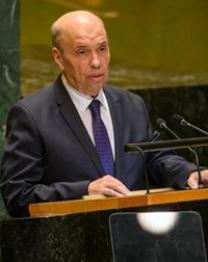
Omar Zniber is Morocco’s Permanent Representative to the United Nations Office and other international organizations in Geneva since 2018. He is currently President of the GSTP Committee of Participants and President of the Group of Francophone Ambassadors in Geneva. He previously served as Ambassador to Germany, Austria, Slovakia, and Slovenia, and held senior positions in Morocco’s Ministry of Foreign Affairs. He holds a doctorate in public international law from Paris II Panthéon-Assas University.
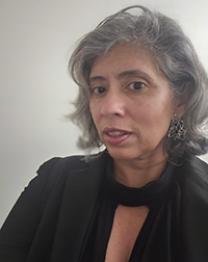
Daniela Arruda Benjamin is a career diplomat for Brazil's Ministry of Foreign Affairs, serving as the Director of the Department of Regional Integration since May 2023.
Since joining the Foreign Service in 1996, she has specialised in negotiating and coordinating state positions in intergovernmental fora, steering high-level policy dialogues, and advancing Brazil's strategic objectives within regional and international organisations.
She served as Minister-Counsellor and Deputy Delegate to international economic organisations in Paris, and she is now Director of the Department of Regional Integration at the Ministry of Foreign Affairs (Itamaraty), where she leads interministerial efforts on integration and political coordination.
Ambassador Benjamin holds a Master's degree in Public International Law and a postgraduate diploma in European Community Law from Université Paris II Panthéon-Assas, a Diploma in Diplomacy from Instituto Rio Branco, and a Bachelor of Laws from the Universidade Federal do Rio Grande do Sul.
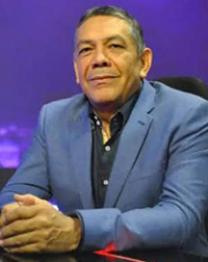
William Alfredo Castillo Bollé currently serves as the Vice Minister of Anti-Blockade Policies at the Ministry of People's Power for Economy, Finance, and Foreign Trade, a position he has held since 2020. He is also the General Manager of the Venezuelan Anti-Blockade Observatory, appointed in the same year.
His career includes significant roles in international communication and media, having previously served as Vice Minister of International Communication at the Ministry of Foreign Affairs (2016-2018) and as Director General of CONATEL, the National Telecommunications Commission (2014-2016).
Earlier in his career, Castillo Bollé held key positions in Venezuela's media and electoral sectors. He was Vice Minister of the Television Area at the Ministry of Communication and Information (2014), President of the Venezuelan Foundation of Social Television (TVES) (2008-2014), and Director General of Information for the National Electoral Council (CNE) in 2006.
Additionally, he served as Vice Minister of Communication Management at the Ministry of Communication and Information (2005), held leadership roles at Venezolana de Televisión (VTV), including Vice President of Content, and was Director General of the Secretariat of State at the Ministry of Finance in 2004.
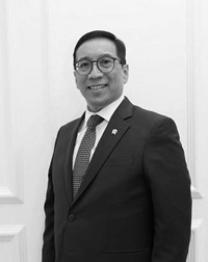
H.E. Mr. Febrian Alphyanto Ruddyard was appointed as the Vice Minister of the National Development Planning/Vice Head of National Development Planning Agency on 20 October 2024.
He served as Permanent Representative of the Republic of Indonesia to the United Nations, the World Trade Organization, and other international organizations in Geneva from December 2021 to January 2025.
During his tenure in Geneva, Ambassador Ruddyard was elected to numerous strategic positions in international organizations, among them: President of the Trade and Development Board of the United Nations Conference on Trade and Development (2023- 2024), President of the United Nations Conference on Disarmament (February 2024), Vice President of the United Nations Human Rights Council (2024), Chair of the ASEAN Committee in Geneva (2023), Chair of the MIKTA Group (2023), Chair of the Working Group on Situations of the United Nations Human Rights Council (2022), President of the Fifth Session of the Intergovernmental Experts on e-Commerce and the Digital Economy of the UNCTAD (2022) and many others.
Ambassador Ruddyard served as Deputy Minister for Multilateral Cooperation at the Ministry of Foreign Affairs of the Republic of Indonesia in Jakarta from 2017 – 2021.
Ambassador Ruddyard joined the Indonesian diplomatic corps in 1990 and has a long record of working in various areas of issues and positions. Among others are Director for Middle East Affairs (2013-2014) and Director for International Security and Disarmament Affairs (2010-2013).
From 2015 to 2017, Ambassador Ruddyard served as the Deputy Chief of Mission at Indonesian Embassy in Vienna. His diplomatic assignment includes the Indonesian Permanent Mission to the United Nations in New York, Indonesian Embassy in Canberra, and Riyadh. Ambassador Ruddyard also served as the Coordinator of the Non-Aligned Movement (NAM) on Disarmament Affairs in New York from 2007-2010.
Ambassador Ruddyard holds a Master of Arts in International Studies from the University of Birmingham. He is married with three sons.
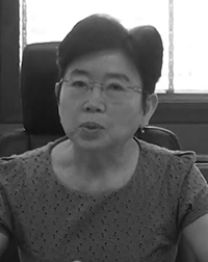
Yuefen Li is currently Special Advisor on Economics and Development Finance at the South Centre, Geneva, and Independent Expert on the effects of foreign debt and other related international financial obligations of States on the full enjoyment of all human rights to the UN Human Rights Council.
She worked at the United Nations Conference on Trade and Development (UNCTAD) from 1990 to 2014 where she last was Head of the Debt and Development Finance Branch in the Division on Globalization and Development Strategies. She was also guest professor at Tsinghua University and two other universities in China. She has published books, papers and articles in professional journals and newspapers, and contributed extensively to UNCTAD and South Centre publications and documents.
She received her Bachelor's degree from the University of Foreign Studies of China and Master's degree from the American Graduate School of International Management in the United States.

Advisor in international development cooperation policy and management. Extensive experience in the formulation and management of development cooperation frameworks and portfolios (e.g. UNDAF, UNSDCF, Country Cooperation Frameworks/Country Programme Documents). Formulation of normative frameworks and methodological tools (e.g. monitoring) regarding international development cooperation implemented with foreign partners. Delegate to multiple multilateral conferences and fora (e.g. SSC Nairobi 2009; SSC Buenos Aires 2019; UNDP Executive Boards; HLC-SSC Meetings; regional-level organizations: OAS, MERCOSUR, SEGIB; intergovernmental mechanisms).
Team leader at ABC on the subject of South-South Cooperation data. Author of books and articles on the subject of international development cooperation.
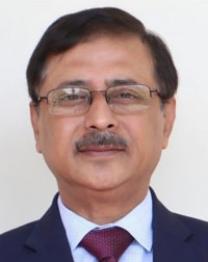
Sanjay Kumar Verma is a seasoned diplomat with 37 years of experience in the Indian Foreign Service (1988-2025). He has held key ambassadorial and leadership roles including High Commissioner of India to Canada, Ambassador to Japan, Sudan, and the Republic of the Marshall Islands, as well as Consul General in Milan, Italy. He has also served on diplomatic assignments in Hong Kong, Beijing, Hanoi, and Ankara. He currently serves as Chairman of the Research and Information System for Developing Countries (RIS) since January 2025.
His distinguished career reflects expertise in strategic diplomacy, multilateral engagement, international trade, counter-terrorism, cyber diplomacy, development cooperation under sanctions, and technological innovation diplomacy.
Ambassador Verma pursued an M.Sc. in Physics from Indian Institute of Technology, Delhi and has completed executive training in cybersecurity, e-governance, international business, and WTO agriculture policy. He is recognized for his principled diplomacy anchored in realism, with a strong commitment to advancing India’s global interests through strategic engagement and innovative solutions.

Emmanuel Omokhomion is a Senior Programme Analyst at the National Bureau of Statistics (NBS), Nigeria, with over nine years of experience in data analysis, machine learning, and national statistics development. He has played a role in major national surveys such as the Nigerian Living Standard Survey and the General Household Survey, working closely with partners like the World Bank to improve data quality, accessibility, and use for evidence-based policymaking.
Emmanuel specializes in using data to solve real-world problems working with predictive models for economic indicators, visualizing insights through dashboards, and applying GIS tools for poverty and development mapping. His work has supported better decision-making across government and contributed to Nigeria’s efforts in strengthening data systems for sustainable development.
He is passionate about innovation, collaboration, and the use of technology to close data gaps in the Global South. Emmanuel holds a bachelor's degree in management information systems from Covenant University, Ogun Nigeria.
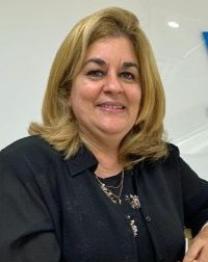
Deborah Rivas Saavedra currently holds the position of Vice Minister of International Trade and Foreign Investment of Cuba.
Prior to her current position, she held a research position at Cubazucar and was president of the Panamericana Corporation, Inc. She has also served in diplomatic positions at the Embassies of Cuba in Mexico and Peru.
Ms. Rivas holds a degree in International Economic Relations from the University of Havana.

Juhara AlSuwaidi is a Qatari diplomat with more than two decades of experience in international relations and human rights. She currently serves as the Deputy Permanent Representative of the State of Qatar to the United Nations Office at Geneva.
Throughout her diplomatic career, she has represented Qatar in numerous international and UN forums, led initiatives related to human rights, and coordinated national efforts in cooperation with international organizations and UN mechanisms.
She holds a Master’s degree in Corruption, Law and Governance (LL.M.) from the University of Sussex. Her professional journey reflects a strong commitment to multilateral diplomacy, the promotion of human rights, and advancing Qatar’s role on the international stage.
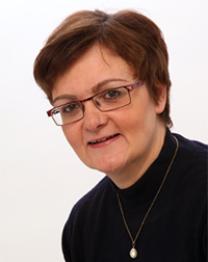
Stephanie Blankenburg leads the Economic Cooperation and Integration amongst Developing Countries Branch at UNCTAD. She joined UNCTAD in 2015, previously heading its Debt and Development Finance Branch.
Prior to joining UNCTAD, Stephanie was Senior Lecturer in Economics at the School of Oriental and African Studies (SOAS) in London (UK) for 15 years and a research fellow at the ESRC Business Centre in the Department of Applied Economics at Cambridge University (UK) prior to her move to SOAS.
She has also worked as a government advisor in Venezuela (2007-2008) and is an Associate Editor of the Cambridge Journal of Economics, following over a decade as a full member of the editorial board until 2015.
She is co-author of two monographs on the theory and practice of neoliberalism. Other areas of research and publication include issues in development finance, the political economy of industrial policy in developing countries, the evolution of multinational corporations and the history of economic thought.
She holds a PhD in Economics from Cambridge University.

Sociologist and international relations professional specializing in South–South and Triangular Cooperation. She works in the Agencia Presidencial de Cooperación Internacional de Colombia (APC Colombia) in the South–South Cooperation Data Team. She coordinates data and reports to SIDICSS and UNCTAD. She has supported high-level events such as COP16, the UN World Data Forum, and Greater Caribbean Week. She provides cross-cutting support across Latin America and the Caribbean and develops briefs and inputs for regional events.
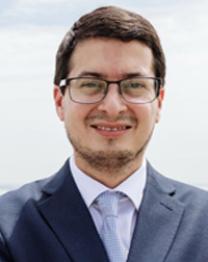
César Sánchez Icaza, Under-Secretary for Foreign Trade Policy and Under-Secretary for International Negotiations. Lawyer from the Catholic University of Santiago de Guayaquil, with over two decades of professional experience in commercial law, oil & gas, environmental law, and telecommunications. Holds a Master’s degree in Mining, Oil and Energy from the Externado University of Colombia, and a Master’s degree in Legal Argumentation from the University of Alicante. He has served as a lecturer at the International University of Ecuador, Ecotec University, Casa Grande University, and the Catholic University of Santiago de Guayaquil.
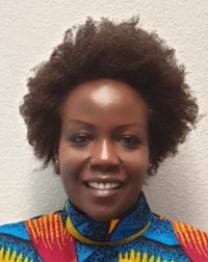
Vanessa Erogbogbo is Chief, Green and Inclusive Value Chains section at the International Trade Centre and a member of the Management Action Group.
She has over two decades of experience in trade and private sector development having worked in both international development and the private sector. She oversees ITC’s work on sustainable value chains and is responsible for driving the sustainability agenda of ITC.
Vanessa is a member of the advisory board of the Geneva Trade Platform housed within the Geneva Graduate Institute’s Centre for Trade and Economic Integration, a member of the steering committee of the Forum on Trade, Environment and the SDGs, and a member of the advisory board of the Ford Foundation Plus Fund Initiative. She was the architect of ITC’s SheTrades initiative and was chair of ISO/IWA 34 on women’s entrepreneurship. She previously held positions at the International Finance Corporation, Standard Chartered Bank, and as an entrepreneur.
She holds an MBA from London Business School, an MSc Information Technology and a B.Eng Hons in Civil Engineering from Loughborough University, and an executive certificate in Climate Change Policy: Economics and Politics from the Harvard Kennedy School.



